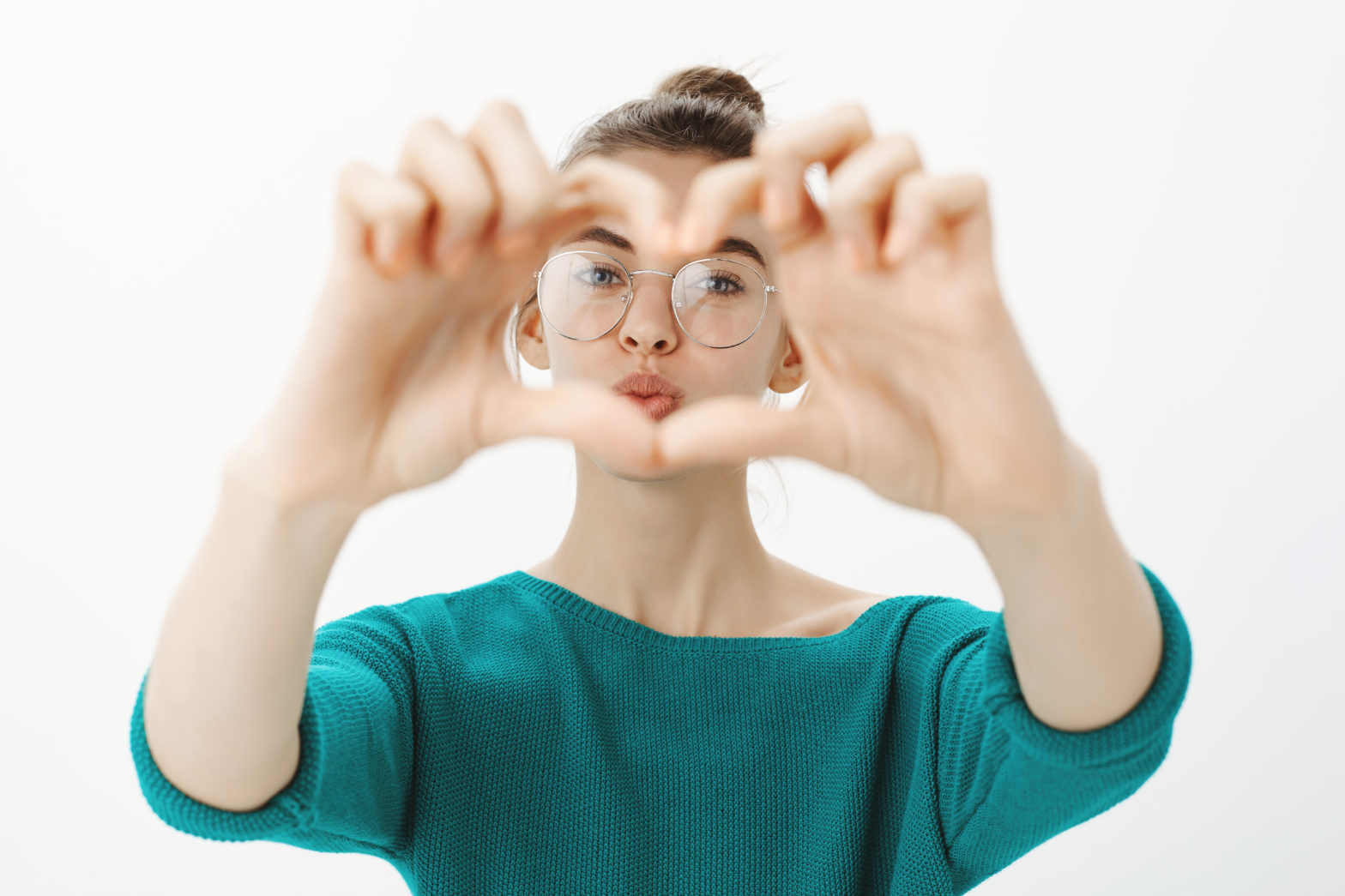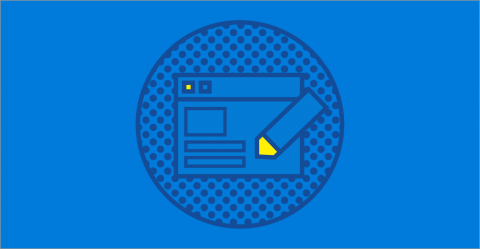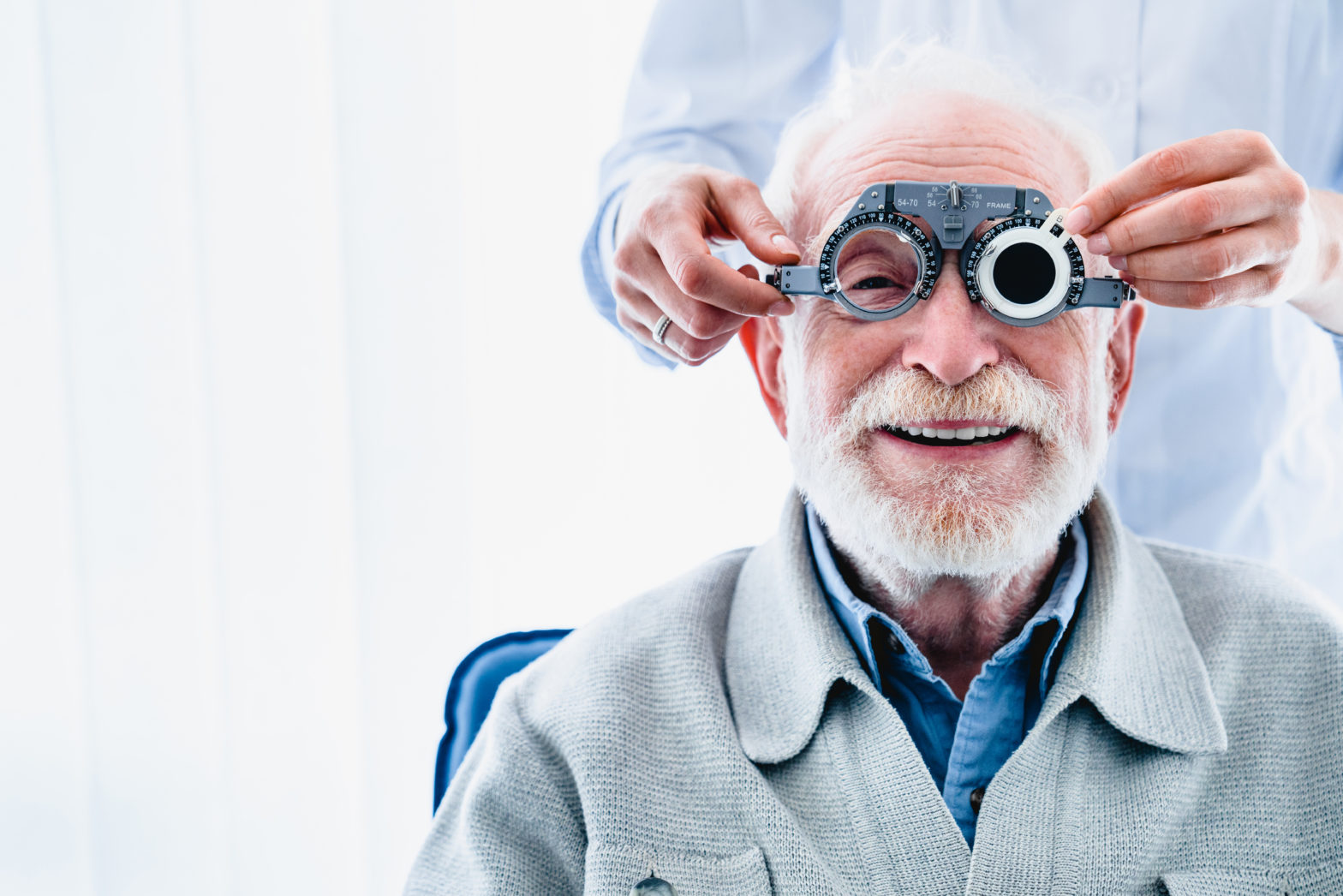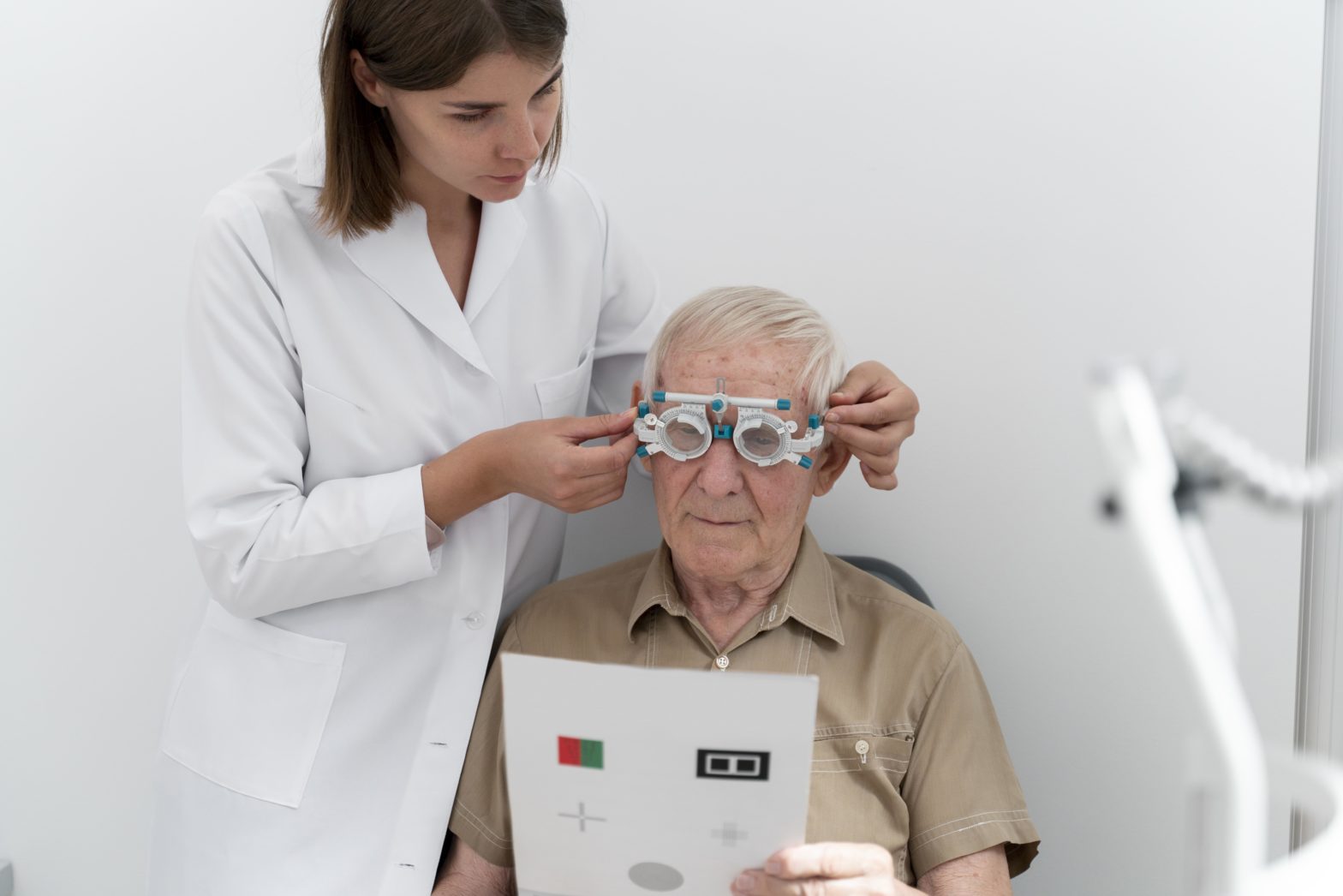ঘুম — এটি একটি গুরুত্বপূর্ণ, পুনরুজ্জীবিত প্রক্রিয়া যা শরীর এবং মনকে পুনরুজ্জীবিত করতে সাহায্য করে। কিন্তু যদি আমরা আপনাকে বলি যে রাতে কেবল আপনার মস্তিষ্কেরই বিশ্রামের প্রয়োজন হয় না? ঘুমের সময় আপনার চোখও তাদের নিজস্ব নিরাময় এবং রক্ষণাবেক্ষণের মধ্য দিয়ে যায়। ঘুম কেবল বিশ্রামের বিষয় নয়; এটি আপনার দৃষ্টিশক্তির স্বাস্থ্য এবং দীর্ঘায়ুতে একটি গুরুত্বপূর্ণ ভূমিকা পালন করে। এই ব্লগে, আমরা গভীরভাবে আলোচনা করব যে ঘুম কীভাবে আপনার চোখের স্বাস্থ্যের উপর প্রভাব ফেলে, যখন আপনি পর্যাপ্ত পরিমাণে পান না তখন কী হয় এবং কীভাবে আপনি আরও ভাল দৃষ্টিশক্তির জন্য আপনার বিশ্রাম সর্বাধিক করতে পারেন।
চোখের স্বাস্থ্যের জন্য ঘুমের গুরুত্ব
ঘুম কীভাবে আপনার চোখকে প্রভাবিত করে তার সুনির্দিষ্ট বিষয়ে খতিয়ে দেখার আগে, আসুন এক ধাপ পিছিয়ে যাই এবং বুঝতে পারি কেন ঘুম সামগ্রিক স্বাস্থ্যের জন্য এত গুরুত্বপূর্ণ। ঘুমের সময়, শরীর বিভিন্ন পর্যায়ে প্রবেশ করে, যার মধ্যে রয়েছে গভীর ঘুম এবং REM (দ্রুত চোখের চলাচল) ঘুম, যা উভয়ই বিভিন্ন পুনরুদ্ধার প্রক্রিয়ার জন্য অত্যন্ত গুরুত্বপূর্ণ। চোখের জন্য, ঘুম বেশ কয়েকটি গুরুত্বপূর্ণ কাজ করে:
- নবজীবন: অন্যান্য অঙ্গের মতো, ঘুমের সময় শরীরের মেরামত প্রক্রিয়া থেকে আপনার চোখও উপকৃত হয়। কোষগুলি পুনরুত্পাদন করে, তরল পদার্থ পুনরায় পূরণ করে এবং সারা দিন ধরে চাপ, দূষণ বা চাপের কারণে যে কোনও ক্ষতি মেরামত করা হয়।
- টিয়ার ফিল্ম পুনরুদ্ধার: ঘুমের সময়, চোখের টিয়ার ফিল্ম পুনরায় পূরণ হয়, যা চোখের আর্দ্রতা, ভারসাম্য বজায় রাখে এবং ধুলো এবং ধ্বংসাবশেষ থেকে সুরক্ষিত রাখে। ঘুমের অভাব চোখের জলের উৎপাদন কমিয়ে দিতে পারে, যা আপনার চোখকে শুষ্ক, কৃপণ বা জ্বালাপোড়া অনুভব করতে পারে।
- প্রদাহ হ্রাস: Sleep helps decrease any inflammation caused by environmental factors like smoke, pollution, or allergies. For those with conditions like dry eye or কনজেক্টিভাইটিস, sleep can help reduce irritation and soothe the eyes.
- চোখের চাপ কম: Studies have shown that adequate sleep helps reduce intraocular pressure (IOP) in the eyes. This is particularly beneficial for individuals with গ্লুকোমা, a condition characterized by increased eye pressure that can damage the optic nerve.
ঘুম কীভাবে চোখের সাধারণ সমস্যাগুলিকে প্রভাবিত করে
কম ঘুম চোখের স্বাস্থ্যের বিভিন্ন সাধারণ সমস্যা তৈরি করতে পারে বা আরও বাড়িয়ে তুলতে পারে। আসুন দেখে নেওয়া যাক বিশ্রামের অভাব কীভাবে এই অবস্থার কিছুর উপর সরাসরি প্রভাব ফেলতে পারে:
১. শুষ্ক চোখ
চোখের স্বাস্থ্যের উপর কম ঘুমের সবচেয়ে লক্ষণীয় প্রভাবগুলির মধ্যে একটি হল শুকনো চোখ. When we don’t get enough rest, the body becomes dehydrated, and this can lead to a reduction in tear production. Our tears are essential in keeping the eyes moist and nourished. Inadequate sleep can cause the tear film to break down faster, leading to the discomfort of dry, scratchy eyes. In the long term, this can even contribute to chronic dry eye syndrome.
২. চোখের উপর চাপ এবং ক্লান্তি
দীর্ঘক্ষণ স্ক্রিনের সামনে থাকার সাথে অপর্যাপ্ত ঘুমের ফলে ডিজিটাল চোখের উপর চাপ (DES) হতে পারে। লক্ষণগুলির মধ্যে রয়েছে মাথাব্যথা, ঝাপসা দৃষ্টি এবং ঘাড়ে ব্যথা, যা আপনার চোখ অতিরিক্ত কাজ করার লক্ষণ। ঘুম চোখের ক্লান্তি কমাতে গুরুত্বপূর্ণ ভূমিকা পালন করে। বিশ্রামের ঘুমের সময়, চোখ সারাদিনের চাপ থেকে সেরে উঠতে পারে।
৩. চোখের ব্যাগ এবং ফোলাভাব
"সৌন্দর্য ঘুম" কথাটি আমরা সকলেই শুনেছি, এবং যদিও এটি কেবল চেহারার জন্য নয়, তবে চোখের ক্ষেত্রেও এর কিছু সত্যতা রয়েছে। অপর্যাপ্ত ঘুম আপনার চোখের নীচের রক্তনালীগুলিকে প্রসারিত করতে পারে, যার ফলে ব্যাগ এবং ফোলাভাব দেখা দিতে পারে। এই কালো দাগগুলি আপনাকে কেবল ক্লান্ত দেখায় না বরং সামগ্রিক স্বাস্থ্যেরও দুর্বলতার ইঙ্গিত দিতে পারে। পর্যাপ্ত ঘুম রক্ত সঞ্চালন নিয়ন্ত্রণ করতে সাহায্য করে এবং চোখের নীচে ব্যাগের উপস্থিতি হ্রাস করে।
৪. চোখ পিটপিট করা
Eye twitching, also known as myokymia, is another common result of sleep deprivation. This repetitive, involuntary spasm of the eyelid can be triggered by stress, fatigue, or too much caffeine. The twitching can be distracting and bothersome, but the solution is simple — sleep. A good night’s rest can ease the spasms and prevent them from recurring.
৫. চোখের রোগের ঝুঁকি বৃদ্ধি
Chronic sleep deprivation can contribute to long-term health issues, including conditions that affect the eyes. For example, lack of sleep has been linked to a higher risk of developing glaucoma, a leading cause of blindness worldwide. Sleep also plays a role in regulating blood pressure, which, when left unchecked, can damage the blood vessels in the eyes, leading to ডায়াবেটিক রেটিনা ক্ষয় or macular degeneration.
ঘুম এবং রেটিনার মধ্যে যোগসূত্র
চোখের পিছনের আলো-সংবেদনশীল স্তর রেটিনা, ঘুমের মাধ্যমেও উপকৃত হয়। রেটিনা আলোকে সংকেতে রূপান্তরিত করার জন্য দায়ী যা মস্তিষ্কে দৃশ্যমান চিত্র তৈরির জন্য পাঠানো হয়। গবেষণায় দেখা গেছে যে ঘুম দিনের বেলায় রেটিনায় জমে থাকা বিষাক্ত পদার্থগুলি পরিষ্কার করতে সাহায্য করে। এর মধ্যে রয়েছে বিটা-অ্যামাইলয়েড প্রোটিন, যা আলঝাইমার রোগের বিকাশে জড়িত। ঘুমের সময় আপনার মস্তিষ্ককে এই বিষাক্ত পদার্থগুলি অপসারণ করতে দিয়ে, আপনি কেবল আপনার জ্ঞানীয় স্বাস্থ্যকেই সমর্থন করছেন না বরং আপনার রেটিনাকে সর্বোত্তম অবস্থায় রাখা নিশ্চিত করছেন।
আপনার চোখের কতটা ঘুম প্রয়োজন?
তাহলে, চোখের সুস্থতার জন্য কতটা ঘুম যথেষ্ট? প্রতিটি ব্যক্তির প্রয়োজনীয় ঘুমের পরিমাণ ভিন্ন হতে পারে, তবে বেশিরভাগ প্রাপ্তবয়স্কদের প্রতি রাতে ৭ থেকে ৯ ঘন্টা ঘুমের প্রয়োজন হয়। তবে, পরিমাণের চেয়ে গুণগত মানও গুরুত্বপূর্ণ। আপনার চোখের সমস্ত পুনরুদ্ধারমূলক ধাপ অতিক্রম করার জন্য একটি পূর্ণ রাতের নিরবচ্ছিন্ন, গভীর ঘুম অপরিহার্য। বিভিন্ন বয়সের জন্য প্রয়োজনীয় ঘুমের একটি সংক্ষিপ্ত বিবরণ এখানে দেওয়া হল:
- শিশু (০-৩ মাস): ১৪-১৭ ঘন্টা
- শিশু (১-৫ বছর): ১০-১৩ ঘন্টা
- কিশোর (১৪-১৭ বছর): ৮-১০ ঘন্টা
- প্রাপ্তবয়স্ক (১৮-৬৪ বছর): ৭-৯ ঘন্টা
- বয়স্ক প্রাপ্তবয়স্ক (৬৫+ বছর): ৭-৮ ঘন্টা
মনে রাখবেন, এটি কেবল ঘন্টার সংখ্যা নয় বরং আপনার ঘুমের মানের উপরও নির্ভর করে। ঘন ঘন ব্যাঘাত বা খারাপ ঘুমের মান আপনার শরীর এবং চোখের প্রয়োজনীয় বিশ্রামের সুবিধাগুলিকে নষ্ট করতে পারে।
চোখের স্বাস্থ্যের জন্য ভালো ঘুমের টিপস
যদি আপনি আপনার চোখের (এবং আপনার সামগ্রিক স্বাস্থ্যের) জন্য আপনার ঘুমের মান উন্নত করতে চান, তাহলে এখানে কিছু টিপস দেওয়া হল যা আপনাকে সর্বোত্তম সম্ভাব্য ঘুম পেতে সাহায্য করবে:
- একটি ধারাবাহিক ঘুমের সময়সূচী বজায় রাখুন: প্রতিদিন একই সময়ে ঘুমাতে যাওয়া এবং ঘুম থেকে ওঠা আপনার শরীরের অভ্যন্তরীণ ঘড়ি নিয়ন্ত্রণ করতে সাহায্য করে, যার ফলে ঘুমিয়ে পড়া এবং ঘুমিয়ে থাকা সহজ হয়।
- ঘুম-বান্ধব পরিবেশ তৈরি করুন: আপনার শোবার ঘর অন্ধকার, ঠান্ডা এবং শান্ত করুন। আলো আটকাতে ব্ল্যাকআউট পর্দা বা স্লিপ মাস্ক এবং শব্দ কমাতে হোয়াইট নয়েজ মেশিন বা ইয়ারপ্লাগ ব্যবহার করার কথা বিবেচনা করুন।
- ঘুমানোর আগে স্ক্রিন টাইম এড়িয়ে চলুন: স্ক্রিন থেকে নির্গত নীল আলো আপনার শরীরের মেলাটোনিন উৎপাদনে হস্তক্ষেপ করতে পারে, যা ঘুম নিয়ন্ত্রণকারী হরমোন। ঘুমানোর কমপক্ষে এক ঘন্টা আগে স্ক্রিন এড়িয়ে চলার চেষ্টা করুন।
- জলয়োজিত থাকার: পানিশূন্যতা চোখের শুষ্কতা আরও বাড়িয়ে তুলতে পারে, তাই সারাদিন প্রচুর পানি পান করুন। শুধু খেয়াল রাখবেন ঘুমানোর ঠিক আগে খুব বেশি পানি পান করবেন না যাতে মাঝরাতে বাথরুমে যাওয়ার জন্য ঘুম থেকে না ওঠেন।
- ক্যাফিন এবং অ্যালকোহল সীমিত করুন: ক্যাফেইন এবং অ্যালকোহল উভয়ই আপনার ঘুমের চক্রকে ব্যাহত করতে পারে, যার ফলে ঘুমের মান খারাপ হয়। বিকেলে বা সন্ধ্যায় এই পদার্থগুলি এড়িয়ে চলার চেষ্টা করুন।
- প্রয়োজনে ছোট ঘুম নিন: যদি রাতে পর্যাপ্ত ঘুম না হয়, তাহলে দিনের বেলায় একটি ছোট ঘুম (২০-৩০ মিনিট) আপনার চোখ এবং শরীরকে পুনরুজ্জীবিত করতে সাহায্য করতে পারে। শুধু খুব বেশি সময় ধরে ঘুম না দেওয়ার ব্যাপারে সতর্ক থাকুন, কারণ এটি রাতে আপনার ঘুমের ক্ষমতাকে প্রভাবিত করতে পারে।
ঘুম এবং চোখের যত্ন: একটি সামগ্রিক পদ্ধতি
ঘুম অত্যন্ত গুরুত্বপূর্ণ হলেও, এটি চোখের স্বাস্থ্য বজায় রাখার জন্য একটি সামগ্রিক পদ্ধতির অংশ হওয়া উচিত। আপনার চোখকে ভালো অবস্থায় রাখার জন্য এখানে আরও কিছু পদক্ষেপ দেওয়া হল:
- নিয়মিত চোখ পরীক্ষা করান: একজন চক্ষু বিশেষজ্ঞের সাথে নিয়মিত পরীক্ষা-নিরীক্ষা করলে যেকোনো সম্ভাব্য সমস্যা আগে থেকেই ধরা পড়তে পারে। অনেক চোখের রোগ উন্নত না হওয়া পর্যন্ত লক্ষণ দেখা যায় না, তাই নিয়মিত পরীক্ষা আপনার দৃষ্টিশক্তি সংরক্ষণের মূল চাবিকাঠি।
- আপনার চোখকে UV রশ্মি থেকে রক্ষা করুন: বাইরে থাকাকালীন এমন সানগ্লাস পরুন যা সূর্যের আলোতে আপনার চোখের ক্ষতি রোধ করতে UV রশ্মিকে আটকায়।
- স্বাস্থ্যকর ডায়েট অনুসরণ করুন: ভিটামিন এ, ভিটামিন সি এবং ওমেগা-৩ ফ্যাটি অ্যাসিডের মতো অ্যান্টিঅক্সিডেন্ট, ভিটামিন এবং খনিজ সমৃদ্ধ খাবার খাওয়া চোখের স্বাস্থ্যের উন্নতি করতে পারে এবং ম্যাকুলার ডিজেনারেশনের মতো বয়স-সম্পর্কিত অবস্থার বিরুদ্ধে সুরক্ষা দিতে পারে।
ঘুমিয়ে দৃষ্টিশক্তি উন্নত করুন
এটা স্পষ্ট যে ঘুম চোখের স্বাস্থ্য বজায় রাখতে এবং আপনার চোখ যাতে সর্বোত্তমভাবে কাজ করে তা নিশ্চিত করতে গুরুত্বপূর্ণ ভূমিকা পালন করে। রেটিনা থেকে বিষাক্ত পদার্থ অপসারণে সাহায্য করা থেকে শুরু করে শুষ্ক চোখের লক্ষণগুলি হ্রাস করা এবং দীর্ঘমেয়াদী ক্ষতি প্রতিরোধ করা, পর্যাপ্ত বিশ্রাম নেওয়া আপনার দৃষ্টি রক্ষা করার সবচেয়ে সহজ এবং কার্যকর উপায়গুলির মধ্যে একটি। তাই, পরের বার যখন আপনি গভীর রাতের কোনও প্রকল্পের জন্য ঘুম ত্যাগ করতে চান বা আপনার প্রিয় অনুষ্ঠানটি বারবার দেখতে চান, তখন মনে রাখবেন যে আপনার শরীরের অন্যান্য অংশের মতো আপনার চোখেরও বিশ্রামের প্রয়োজন।
আপনার রুটিনে স্বাস্থ্যকর ঘুমের অভ্যাস অন্তর্ভুক্ত করলে কেবল চোখের স্বাস্থ্যই ভালো হবে না বরং সামগ্রিক সুস্থতাও উন্নত হবে। তাই এগিয়ে যান, আপনার ঘুমকে অগ্রাধিকার দিন এবং আপনার চোখের যত্ন নিন - তারা আপনাকে পরিষ্কার, প্রাণবন্ত দৃষ্টি দিয়ে ধন্যবাদ জানাবে।









